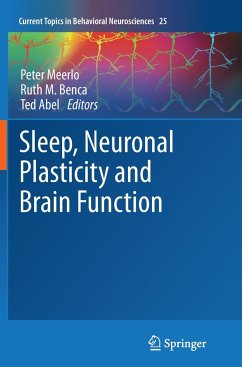This book reviews current knowledge on the importance of sleep for brain function, from molecular mechanisms to behavioral output, with special emphasis on the question of how sleep and sleep loss ultimately affect cognition and mood. It provides an extensive overview of the latest insights in the role of sleep in regulating gene expression, synaptic plasticity and neurogenesis and how that in turn is linked to learning and memory processes. In addition, readers will learn about the potential clinical implications of insufficient sleep and discover how chronically restricted or disrupted sleep may contribute to age-related cognitive decline and the development of psychiatric disorders such as schizophrenia and depression. The book consists of 19 chapters, written by experts in basic sleep research and sleep medicine, which together cover a wide range of topics on the importance of sleep and consequences of sleep disruption. This book will be of interest to students, researchers and clinicians with a general interest in brain function or a specific interest in sleep.
"This is an extensive overview of the relationship between sleep, neuronal plasticity, and brain function. It reviews the developments and progress being made in the attempt to understand the function of sleep. ... The audience will be individuals interested in the neurophysiology of the brain and changes related to sleep states. Students, researchers, and clinicians with an interest in the neurobiological aspects of sleep, sleep deprivation, and its effect on cognitive functioning will find the book useful." (Michael Easton, Doody's Book Reviews, November, 2015)








